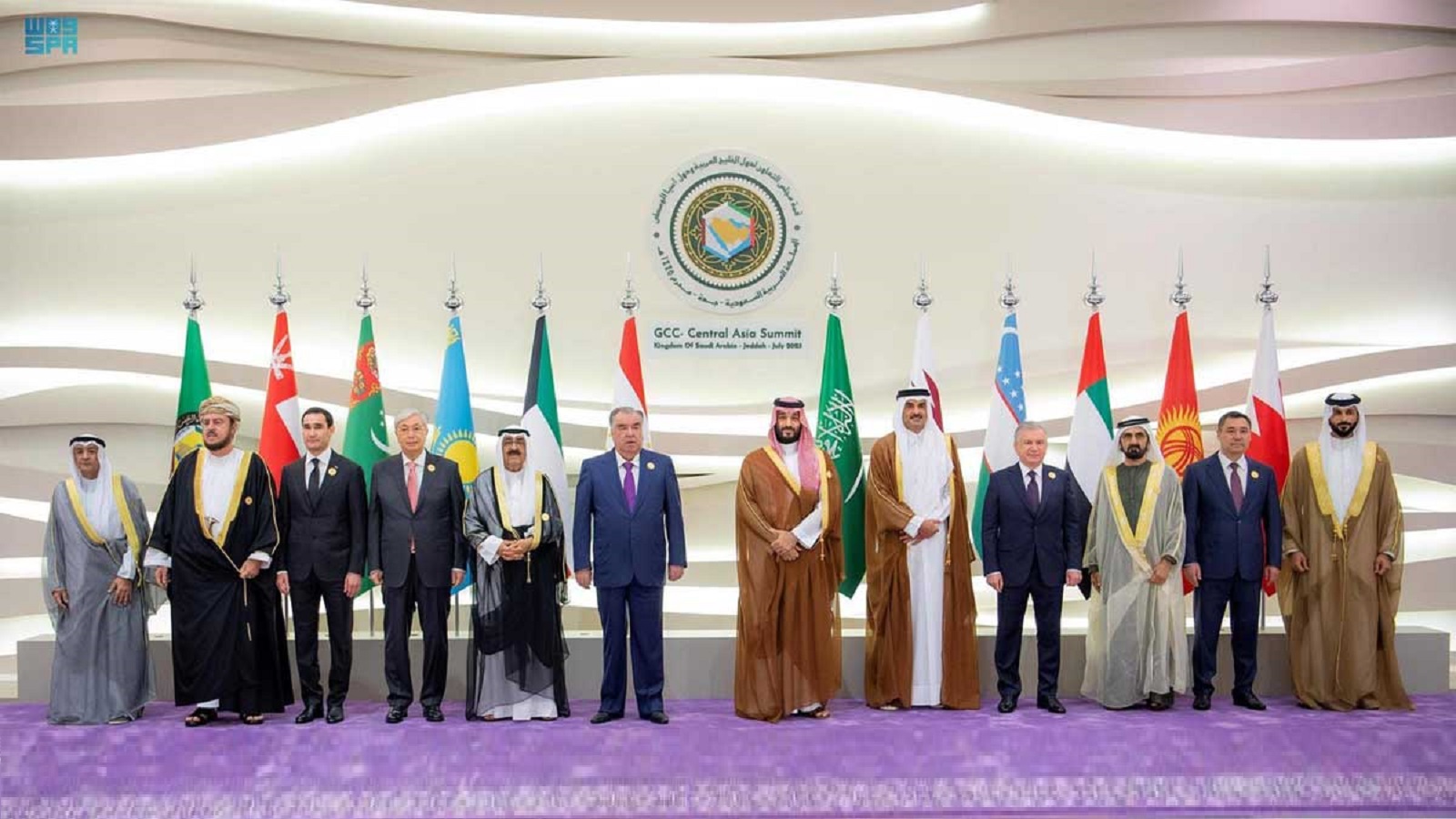A Groundbreaking Gulf-Central Asian Summit
Asharq Al-Awsat, London, July 22
Last week, Jeddah welcomed several high-level summits. Tapping into ongoing diplomatic efforts, the leaders of the Gulf Cooperation Council and five Central Asian nations—Uzbekistan, Turkmenistan, Tajikistan, Kyrgyzstan, and Kazakhstan—met with the aim of establishing new opportunities for collaboration, both domestically and on the international stage. These meetings have the potential to drive forward greater cooperation and growth for the future. The world is undergoing a period of rapid reconfiguration. At the political, economic, and military levels, power dynamics are shifting, and new regional and international relations are being established. The global economy is being reshaped as we speak. We are witnessing changes in the way alliances are formed. New equations in geopolitics are being established, and priorities are shifting. The speech of Saudi Crown Prince and Prime Minister Mohammed bin Salman at the opening of the summit extensively addressed the foundations on which this new relationship was built and the objectives it sought to achieve. He spoke of the “ancient historical ties” between each nation and declared that the summit was an opportunity to tap into the potential of these connections. He underscored the shared resources and economic growth that have contributed to collective GDPs of nearly $2.3 trillion, emphasizing the need for collective cooperation in all fields. The leaders of the Gulf Cooperation Council and Central Asian countries subsequently echoed these objectives and goals in their own remarks. In an interview with an Asharq Al-Awsat reporter, Tajikistan’s Foreign Minister Sirojiddin Muhriddin remarked that the ever-shifting geopolitical landscape and the diplomatic and economic evolutions of the region and the world necessitate a new approach to collaboration between the two regions.
As readers of Arab and Islamic history, we recognize many names, symbols, and countries stemming from the Central Asian tradition known of old as “The Land Beyond the River.” It was there that Islam first spread with the advent of Qutayba Ibn Muslim. These nations still enjoy prominence today as important Muslim members of the United Nations and the Organization of Islamic Cooperation. The region’s significant contributions to Islamic thought can be attributed to its esteemed figures, which include generations of scholars, jurists, hadith specialists, and philosophers spanning Islamic history. More than seven years ago, I wrote an article titled “The Kurds and the Central Asian Countries,” in which I highlighted the importance of Central Asian countries for regional and international prosperity. With their strong presence on the borders of southern Russia and Western China, these Central Asian countries could have a great effect on the emerging balance of power in the new world. Unlike the two-pole theory suggested by Henry Kissinger, or the one-pole theory promoted by Zbigniew Brzezinski, the Central Asian countries have an important part to play in this ever-changing geopolitical environment. In a recent article, the Minister of Foreign Affairs of Tajikistan discussed the geopolitical importance of Central Asia. The article highlighted that Central Asia could present a momentous change in geopolitics and provide a framework to develop stronger, mutually beneficial relations between South America and East Asian countries. Regarding location, status, and influence, he wrote: This Gulf-Central Asian Summit is the first of its kind and, after months of extensive preparation, it has indeed turned a new page in history for the relation between the two regions, their countries, and their peoples. As affirmed by the summit’s leaders, it offers immense opportunities in the present and future, drawing upon our deep-rooted common heritage that is steeped in history and ancient culture. The opportunities it presents are manifold. A Gulf-Central Asian Summit could serve as a model for leaders to use vision, decision-making, and partnership to improve the world’s political and economic success, security, and stability on both regional and global scales. Its outcomes would be significant. Finally, Saudi Arabia, alongside the Gulf states, is blazing a trail for true stability on the global stage. Riyadh’s agreement with Iran and its newly established ties with Turkey have reaffirmed that, by aligning visions and magnifying shared interests and development goals, much can be accomplished for opposing parties, demonstrating that conflict does not have to be the only means of confronting modern issues. —Abdulah Bin Bijad Al Otaibi (translated by Asaf Zilberfarb)


